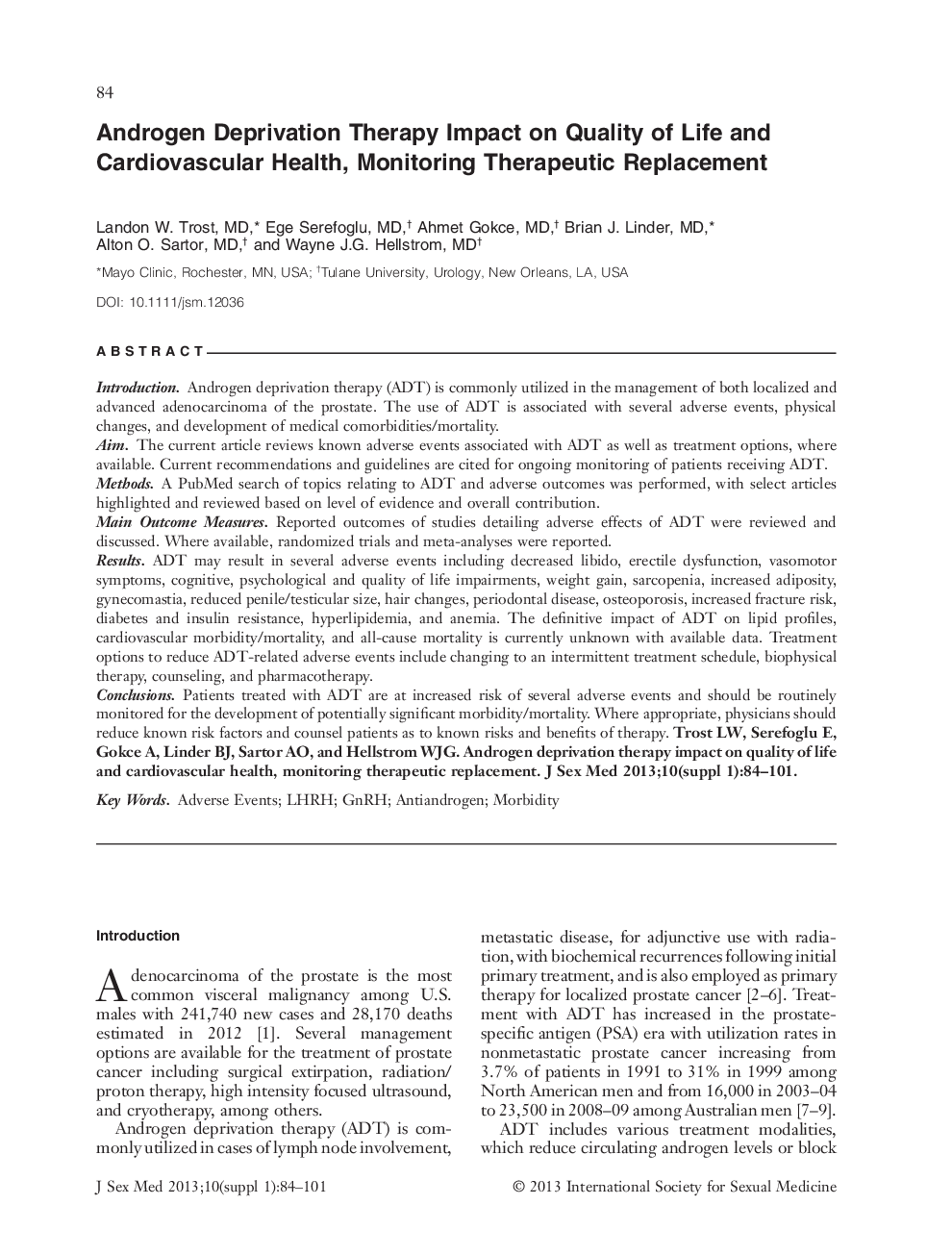| کد مقاله | کد نشریه | سال انتشار | مقاله انگلیسی | نسخه تمام متن |
|---|---|---|---|---|
| 4270533 | 1610894 | 2013 | 18 صفحه PDF | دانلود رایگان |

IntroductionAndrogen deprivation therapy (ADT) is commonly utilized in the management of both localized and advanced adenocarcinoma of the prostate. The use of ADT is associated with several adverse events, physical changes, and development of medical comorbidities/mortality.AimThe current article reviews known adverse events associated with ADT as well as treatment options, where available. Current recommendations and guidelines are cited for ongoing monitoring of patients receiving ADT.MethodsA PubMed search of topics relating to ADT and adverse outcomes was performed, with select articles highlighted and reviewed based on level of evidence and overall contribution.Main Outcome MeasuresReported outcomes of studies detailing adverse effects of ADT were reviewed and discussed. Where available, randomized trials and meta‐analyses were reported.ResultsADT may result in several adverse events including decreased libido, erectile dysfunction, vasomotor symptoms, cognitive, psychological and quality of life impairments, weight gain, sarcopenia, increased adiposity, gynecomastia, reduced penile/testicular size, hair changes, periodontal disease, osteoporosis, increased fracture risk, diabetes and insulin resistance, hyperlipidemia, and anemia. The definitive impact of ADT on lipid profiles, cardiovascular morbidity/mortality, and all‐cause mortality is currently unknown with available data. Treatment options to reduce ADT‐related adverse events include changing to an intermittent treatment schedule, biophysical therapy, counseling, and pharmacotherapy.ConclusionsPatients treated with ADT are at increased risk of several adverse events and should be routinely monitored for the development of potentially significant morbidity/mortality. Where appropriate, physicians should reduce known risk factors and counsel patients as to known risks and benefits of therapy.
Journal: The Journal of Sexual Medicine - Volume 10, Supplement 1, February 2013, Pages 84–101